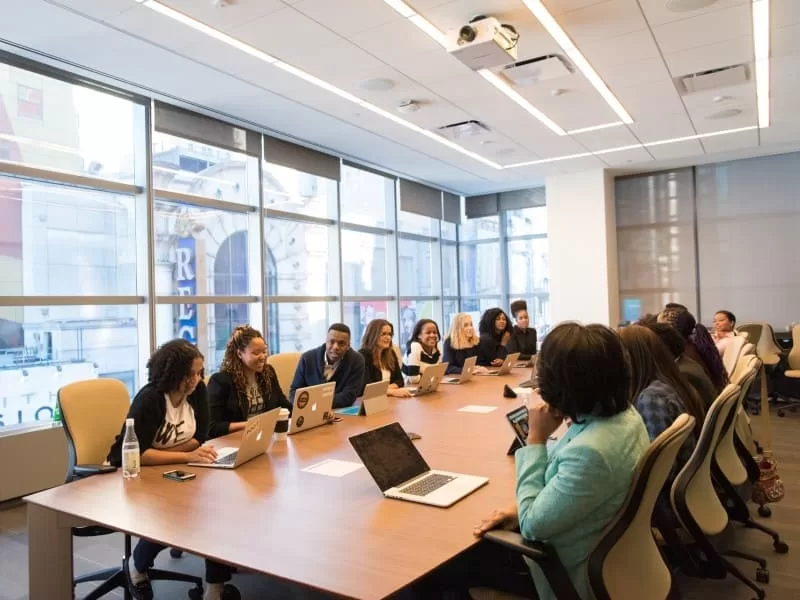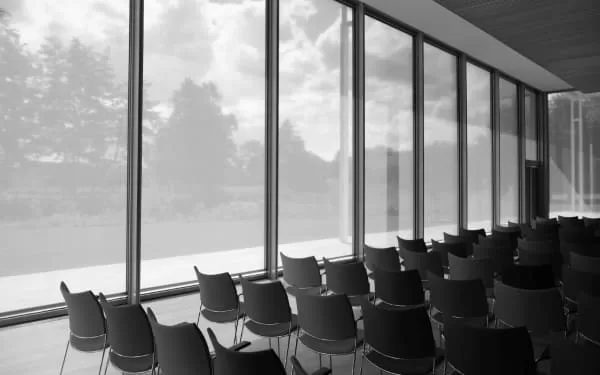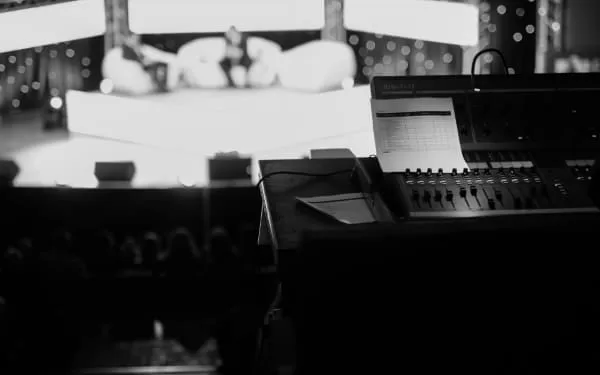Simultaneous Interpreting
Are you in need of simultaneous interpreting services for an international conference?
Are you looking for simultaneous interpreting services for a multilingual corporate meeting?
Interpreting agency
What is simultaneous interpreting?
Have you ever heard of simultaneous interpreting? It is a fascinating technique used in multilingual conferences and international meetings. Interpreters work in soundproof cabins and use specialized equipment to convey the message to the audience while the speaker delivers his or her speech. This type of work requires exceptional language skills as well as an exceptional ability to concentrate and process information quickly. The original speech must be translated as the sender continues speaking, without losing accuracy and quality. They must also have specialist knowledge of the subject in question in order to ensure its correct translation.
Simultaneous interpreting is acrucial tool for global communication and has been utilized for decades at all sorts of multilingual events, from political meetings to international concerts. Its use overcomes language and cultural barriers and promotes mutual understanding between people who speak different languages.
The characteristics of simultaneous interpreting
Simultaneous interpreting is an incredibly complex process that requires advanced cognitive and linguistic skills. An interpreter must be able to concentrate, have a good short-term memory and be able to process information quickly.
One of the major challenges in this task is keeping up with the rhythm of the speakers without errors or missing details. To achieve this, interpreters use techniques like anticipation, segmentation and summarization in order to process what is being said more efficiently. They also have to adapt quickly to different speaking styles and tones of voice in order to overcome possible technical or comprehension problems.
Another characteristic of simultaneous interpreting is its frequent use at important international events such as conferences or political summits. Because it is conducted in real time, it allows for seamless communication between participants speaking different languages without significant interruptions or delays; it is therefore considered a key tool for fostering intercultural dialogue and boosting global cooperation in various fields.
How simultaneous interpreting works
Simultaneous interpreting requires high-quality, specialised technical equipment to ensure smooth and uninterrupted communication between the participants. Microphones, headphones, audio equipment and soundproof cabins are indispensable for interpreters to work effectively.
Once technical equipment is ready, simultaneous interpreting can start. The interpreter must listen attentively to what the speaker says in his or her original language while at the same time speaking in another language into the corresponding microphone, a task which requires great concentration.
In doing so, it is important to keep up with the speaker so that no information is missed and the interpreter does not become confused. Moreover, it is also important to take short breaks from time to time to avoid physical and mental fatigue of the interpreter.
In conclusion: simultaneous interpreting is a necessary but extremely complicated activity for effective communication between people of different languages and cultures during events, such as international conferences or multilingual business meetings.
The required equipment for simultaneous interpreting
In order to achieve the highest quality simultaneous interpretation, specific technical equipment is required. The main components are the audio system consisting of microphones and headphones for interpreters and speakers. Microphones should have directional and omnidirectional functionalities to capture the orator’s voice from all possible angles. The headphones must allow the interpreters to hear what is being said with clarity.
Another essential element of the equipment is the soundproof cabin for the interpreters. The cabin must have proper ventilation systems to ensure the well-being and comfort of the professionals working in it for long periods of time. It also should have a window for each language that is being translated.
Finally, a specialised computer system is needed to transmit, without interference or significant delays, the audio between the booths and the rooms where the event or conference is taking place. This mechanism allows multiple individuals to follow in real time and in different languages the given speech. Having the right equipment is crucial for efficient and accurate interpreting in academic and professional contexts.
Related articles - Simultaneous interpreting
Other interpreting specialist areas







